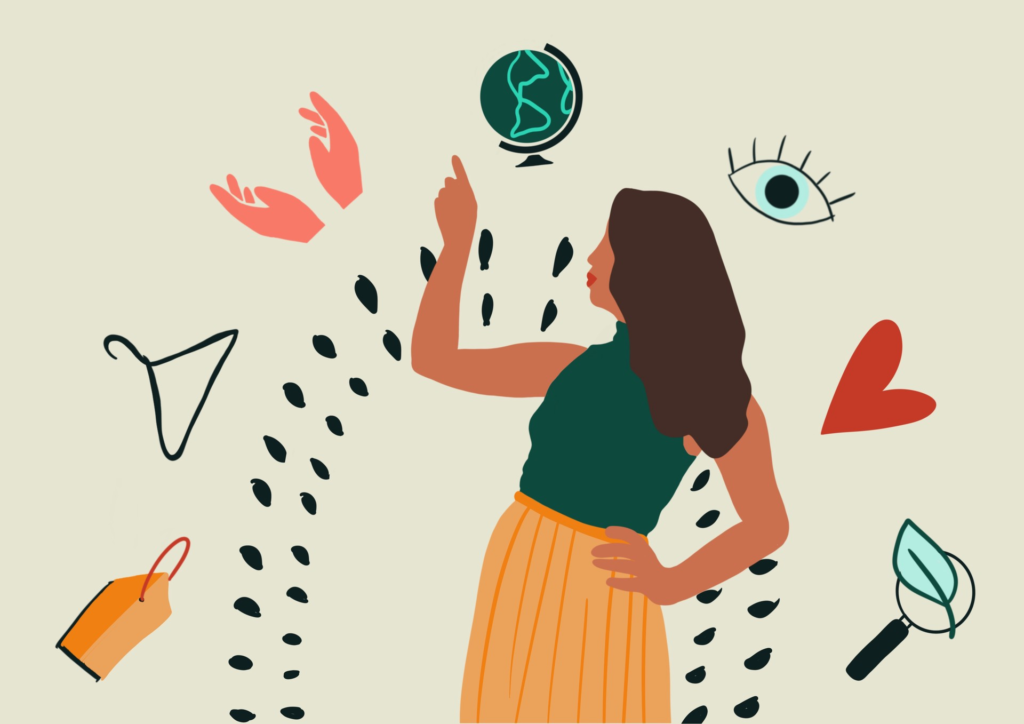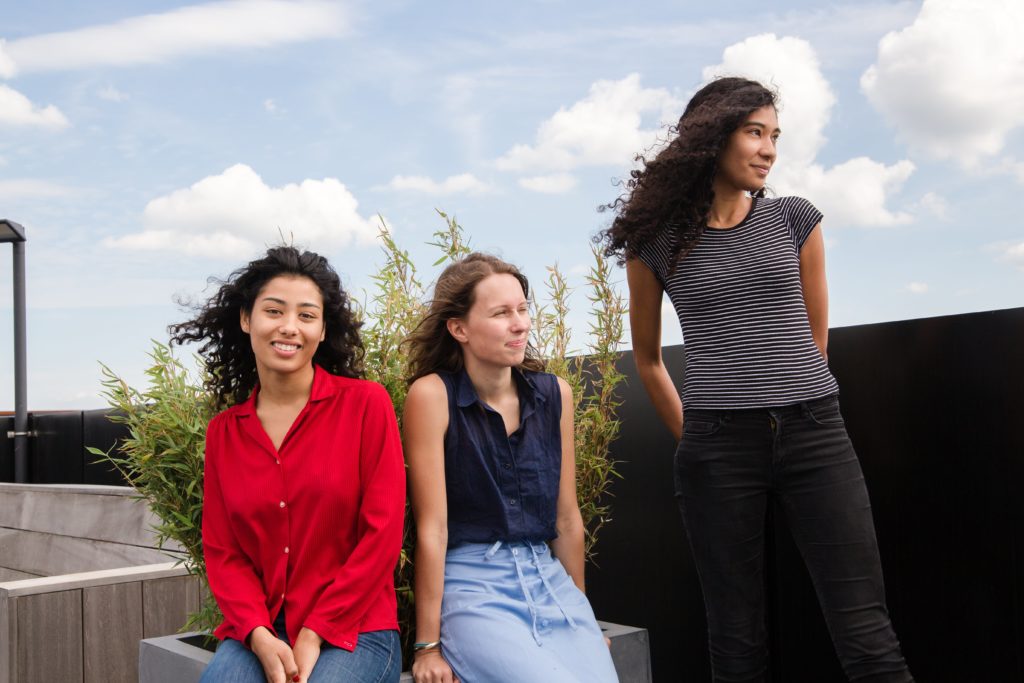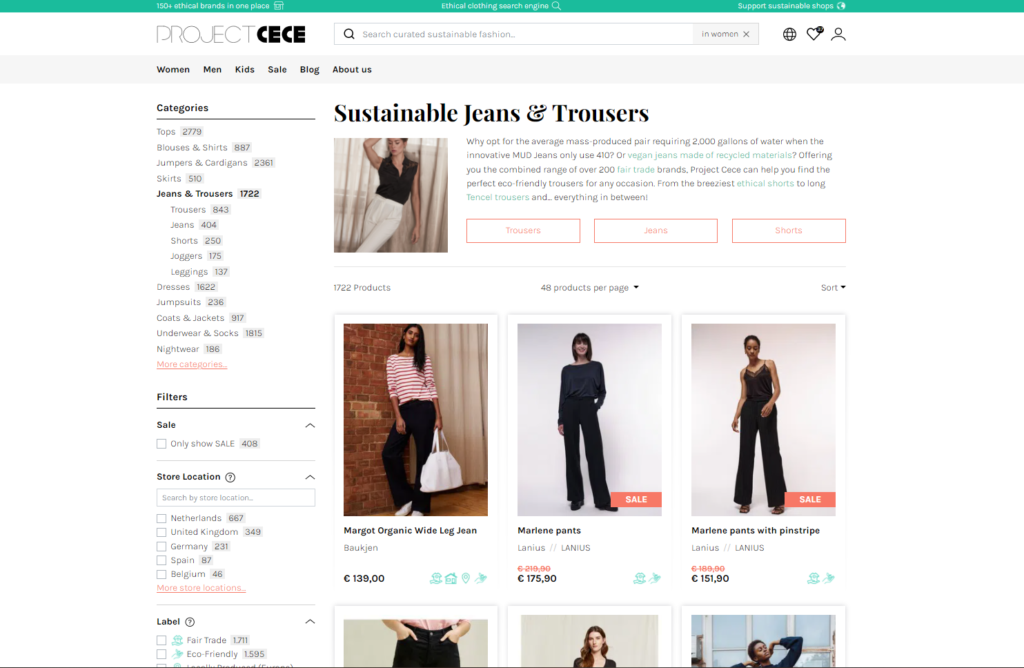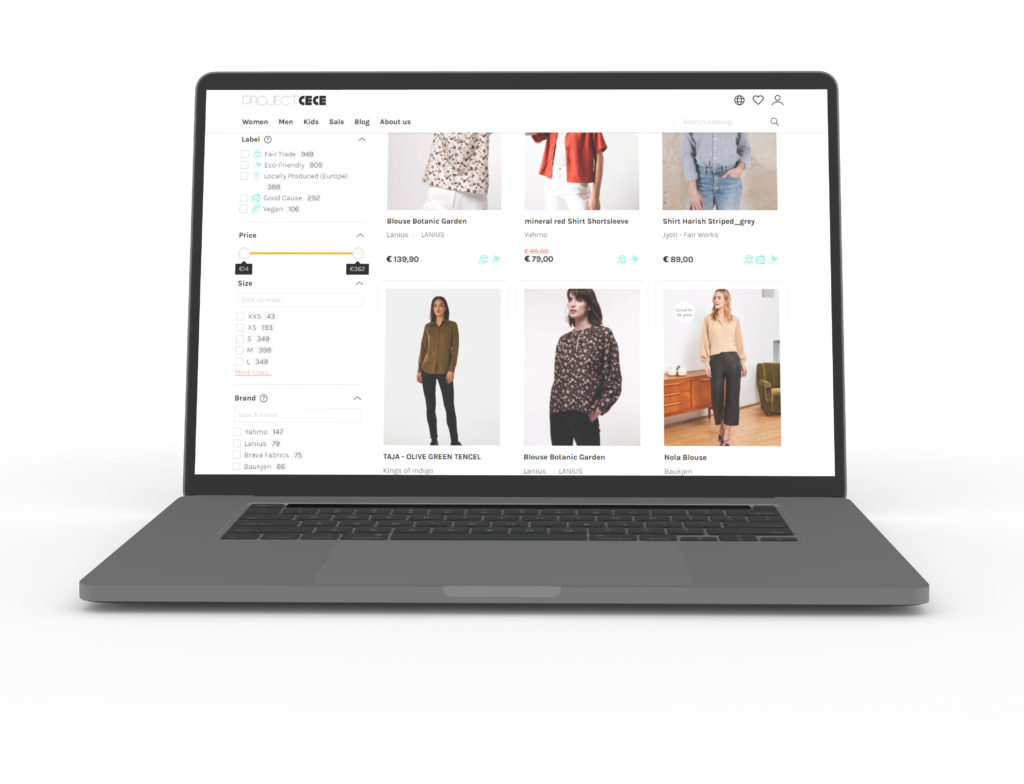The Netherlands (Amsterdam)
Project CeCe is the search engine for sustainable fashion.
The cat has long been out of the shopping bag — the fashion industry contributes 10% to the planet’s global carbon dioxide emissions every year, and as Fashion Revolution, the world’s largest fashion activism movement reports, only 2% of fashion workers around the world are paid a livable salary. And that’s just to mention a few of the fashion industry’s piles of dirty linen that have gone public in recent years.
Shoppers have realised that their love for wonderful clothes can come at a big cost for people & planet, a cost many no longer want to add to. But as the demand for sustainable fashion products rises, so does greenwashing. Brands are tempted by the cash potential of the greener side of markets and figuring out whether that new pair of jeans really is sustainable or has just been washed in chemicals and misleading advertisement is becoming increasingly difficult.

Credit: Project CeCe
Sisters Melissa and Marcella Wijngaarden and their friend Noor Veenhoven knew there was something they could do to make things easier for shoppers. The inspiration was right at their fingertips — where do you go to search for what you need and get filtered answers quickly?
In 2017, they founded Project CeCe, the search engine for sustainable fashion. Basically, they do the hard vetting work for you. The team research, review, select and categorise fashion brands and shops so that you’re sure to find clothes that fit your style and values in seconds. At the time of writing, there are 200 ethical fashion stores and well over 400 fair trade brands, meaning over 40,000 sustainable fashion products on Project CeCe.

Meet the founders (left to right): Melissa Wijngaarden, Noor Veenhoven, Marcella Wijngaarden. Credit: Project CeCe
Even though easier browsing is certainly a perk, that’s not Project CeCe’s mission. They hope to help radically change current trends and practices to turn fast fashion into fair fashion, by connecting shoppers with a wide range of ethically produced products from sustainable businesses. Marcella tells us:
“We want a fashion industry that does not destroy the planet and exploit its people. Ideally, Project Cece does not have to exist as an alternative to fast fashion, because there is no fast fashion anymore. The industry as a whole needs to change, and quickly. Sustainability can no longer be a niche and after-thought.”
So how does Project CeCe select sustainable brands and items? Knowing that sustainability can be quite an ambiguous term, they explain in detail why and how a brand is sustainable in the brand description. And the project’s sustainability standards and selection criteria are easily accessible on the website.
To be allowed onto Project CeCe, a brand must meet at least their fair trade & ethical production and environmentally friendly label standards. Fair trade looks at the work conditions in the clothing production process. For example, workers must be paid living wages (not minimum wages), operate in safe and clean areas, follow normal working hours, etc. The website also says that Project CeCe always makes sure to check where the clothing is produced and where the materials come from, and in the case of high-risk materials like cotton, fair trade certifications are required. When it comes to environmentally friendly products, Project CeCe looks at the sustainability of materials including water and chemicals usage, CO2 emissions, packaging, and more.

All items are fair trade and environmentally friendly, and you can choose additional labels and filters for your search. Credit: Project CeCe
Although fair trade and environmentally friendly are required of all brands on Project CeCe, these aren’t the only sustainability criteria shoppers can use to pick their outfits on the website.
Additional labels include locally produced for items that are cut and sewed in Europe (the brand description will let you know whether a producer sources material from outside Europe); vegan & animal welfare for brands that only use materials that are free of animal products and labour; and good cause for companies that go an extra mile to make the world a better place (from planting trees to donating to charity, supporting local communities, etc.) Users can apply filters to only search brands that meet their sustainability and shipping criteria, and Marcella tells us that new filters are in the making, such as plastic-free packaging.
But what if you prefer brick and mortar shops, or simply don’t want to use a platform like Project Cece? We’ve asked for their best tips to spot greenwashing on your own when you need to buy new clothes. Here’s what Marcella suggests:
- Follow the numbers. If a brand has one green collection, but still launches new products made from virgin polyester every day, it can never be sustainable. Slow production is key.
- Sustainability is intersectional. If a brand calls a product sustainable because it’s made from an eco-friendlier material but they say nothing about where, by whom, and for what prices it’s produced, then it cannot be sustainable.
- If a brand pushes new ‘sustainable’ collections every single week and the focus is on you buying more than you actually need, then it’s not sustainable
- The same goes for buy-back programmes — if they give you a discount to be spent on new products made in an unsustainable way, the brand you’re looking at is not sustainable.

Credit: Project CeCe
Marcella says that Project CeCe is about “being more mindful with clothing, from buying to taking care of it.” So even though they can help you make more sustainable purchase decisions when you need new clothes, their website also gives plenty of advice on how to fix damaged but still wearable items, washing techniques that will make them last longer, and how to sell clothes online sustainably.
Their blog also looks into the latest fair fashion trends — from vegetable leathers made from cactus, pineapple, or mushrooms, to biodegradable synthetic materials.
AtlasAction: Marcella is convinced that informed shoppers can change the world so reading about the fashion industry and how to fix it is the best way to help. Want to support Project CeCe? Browse the website and follow them on social media.
Project leader
Melissa Wijngaarden, Noor Veenhoven, Marcella Wijngaarden
Support the Atlas
We want the Atlas of the Future media platform and our event to be available to everybody, everywhere for free – always. Fancy helping us spread stories of hope and optimism to create a better tomorrow? For those able, we'd be grateful for any donation.
- Please support the Atlas here
- Thank you!

